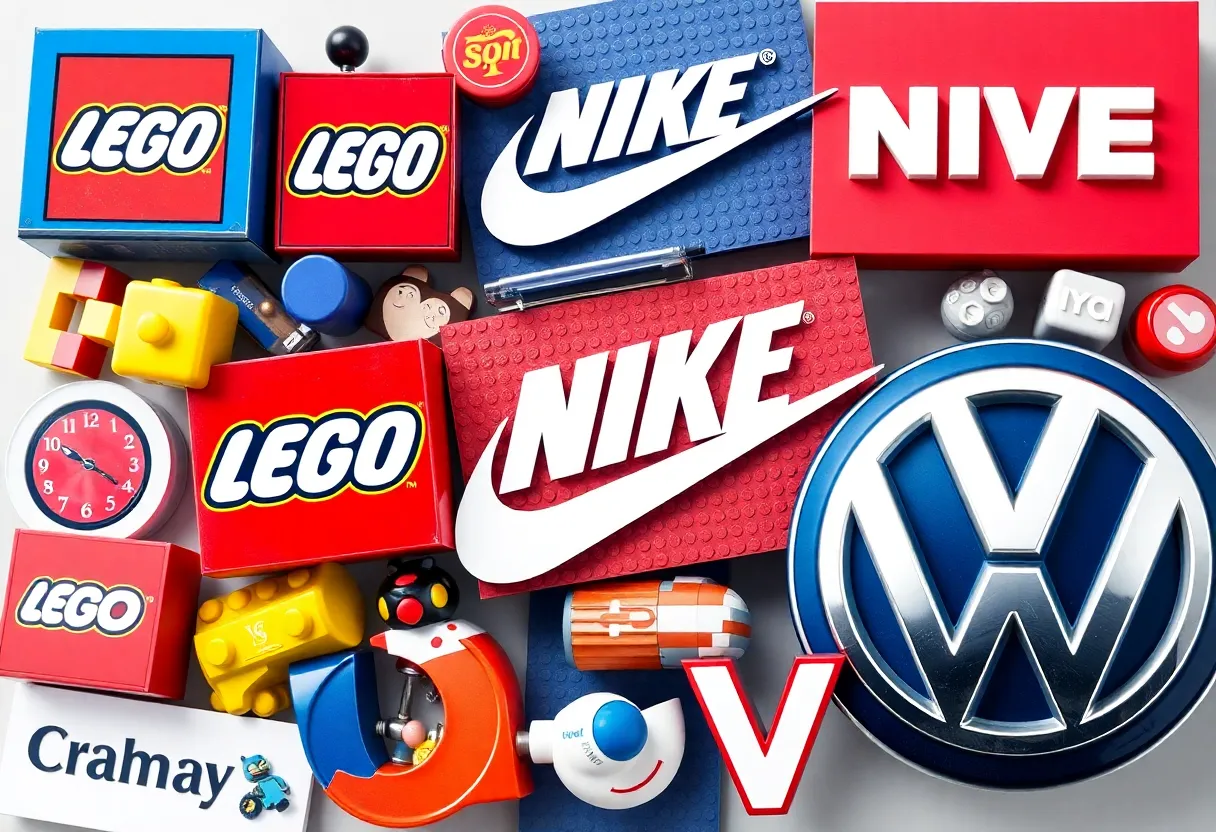News Summary
This article explores how legacy brands are adapting to the digital age by reinventing their marketing strategies. Through examples like Cadbury and LEGO, it discusses the importance of emotional connections, innovative campaigns, and the rise of the creator economy, showing that embracing change is essential for longevity in today’s fast-paced digital marketplace.
The Shift to Digital: Legacy Brands Embrace the Change
In today’s fast-paced world, it seems that the only constant is change, and that has never been truer than in the realm of marketing. With technology evolving at breakneck speed, legacy brands are finding it essential to transition from traditional marketing methods to more modern digital strategies. This shift isn’t just a trend; it’s a necessity as consumer behavior continues to evolve.
Building Deeper Connections
Consumers are craving stronger bonds with the brands they love. Traditional advertising methods simply don’t cut it anymore. Instead, brands are focusing on creating richer, more engaging experiences. For example, Cadbury has tapped into this sentiment with their new digital content series, “Families Reunited.” This initiative features short films that showcase the joy of family connections and the simple pleasure of sharing a chocolate bar. It’s this kind of emotional engagement that keeps customers coming back for more.
LEGO’s Remarkable Comeback
One brand that has truly embraced digital transformation is LEGO. Back in 2003, the company faced significant challenges, with debts of $800 million threatening its very existence. However, LEGO turned its fortunes around by restructuring its strategy to embrace digital technologies. The results have been astounding! In 2015, LEGO reported sales exceeding $1 billion for the first time. Part of this success came from launching “LEGO Life,” a social media platform where kids can share their creations. It’s a fun way to bolster their digital presence while fostering a sense of community among young builders.
Nike’s Innovative Campaigns
Nike, known for its cutting-edge marketing, has also harnessed the power of digital. The sportswear giant has integrated social media into its campaigns, with live events such as shoe collection launches taking place on platforms like Twitch. Not only that, but they have also created the Nike Plus app, which actively engages customers through personalized fitness experiences. The combination of digital platforms and experiential marketing is helping Nike reach customers more effectively.
The Guardian’s Digital Journalism Evolution
Even traditional news outlets are making substantial progress in the digital realm. The Guardian has made significant strides in transforming how it delivers news through responsive mobile apps and innovative content formats. They’ve even sought reader financing to support independent journalism. This adaptation showcases how vital it is for every brand, regardless of industry, to embrace digital transformation.
Volkswagen’s Vision for the Future
Shifting gears a bit, let’s talk about Volkswagen, which plans to invest a staggering $3.85 billion in digitization by 2025. They aim to create personalized digital services that will be integrated into their vehicles, making cars more than just a mode of transportation but rather central hubs for everyday life. This initiative is particularly intriguing, as it seeks to connect vehicles with the Internet of Things (IoT), creating a seamless integration into consumers’ daily routines.
Tapping Into the Creator Economy
Another significant trend among legacy brands is the rise of the creator economy, where influencers and content creators hold substantial sway over consumer choices. Brands are challenged to navigate this space effectively. Visa, for instance, is focusing on partnerships with creators through initiatives like the “Visa NFT Creator Program“, which helps creators monetize their content. Through the GetP@id program, they connect aspiring creators with mentors in various industries such as fashion, music, and food. This support helps young talent transition their passions into sustainable careers, bridging the gap between traditional brands and the modern creator landscape.
Embracing Change
Finally, it’s vital for legacy brands to adopt a decentralized approach when engaging with creators. As cultural shifts happen rapidly, these brands must adapt to keep up with changing consumer behavior. Successful navigation through these changes could determine their longevity in today’s digital marketplace.
In conclusion, the journey from traditional to digital marketing doesn’t just involve adopting new technologies; it requires a fundamental shift in how legacy brands engage with their customers. As we observe the paths of brands like Cadbury, LEGO, Nike, and Volkswagen, it’s clear that embracing change is the only way forward in this ever-evolving landscape.
Deeper Dive: News & Info About This Topic
HERE Resources
The Evolution of Cultural Trends in the Age of Social Media
Unlocking Customer Loyalty with One-to-One Marketing
Starting Your Own Ecommerce Business with Shopify Made Easy
DiscoverMyBusiness Expands Digital Marketing Services Across New York State
Custom Design Revolutionizes Branding Strategies for New York Businesses
Digital Silk Leads New York Businesses in Custom Branding
Fortune Media Updates Terms of Use and Privacy Policies for 2025
Study Reveals Fun Social Media Banter Can Boost Fast Food Sales!
Cape Cod Community College Rethinks Social Media Strategy
Neon’s Creative Marketing Strategy for ‘Anora’ Leads to Academy Glory
Additional Resources
- Spiceworks: Traditional to Digital Marketing Lessons
- Wikipedia: Digital Marketing
- Forbes: How Legacy Brands Can Adapt to the Creator Economy
- Google Search: Legacy Brands Digital Marketing
- The Drum: TikTok’s Legacy So Far
- Google Scholar: Legacy Brands Marketing
- BW Marketing: Quick 5 with MTR’s Prerna Tiku
- Encyclopedia Britannica: Marketing
- Exchange4Media: Paving the Future Growth Roadmap
- Google News: Legacy Brands







